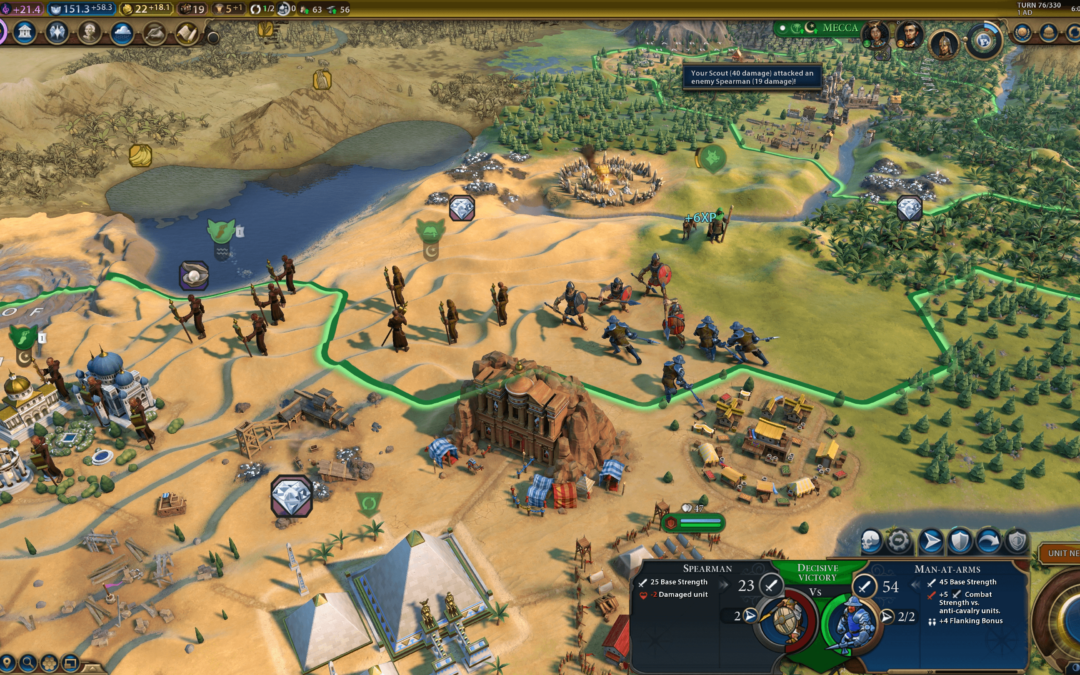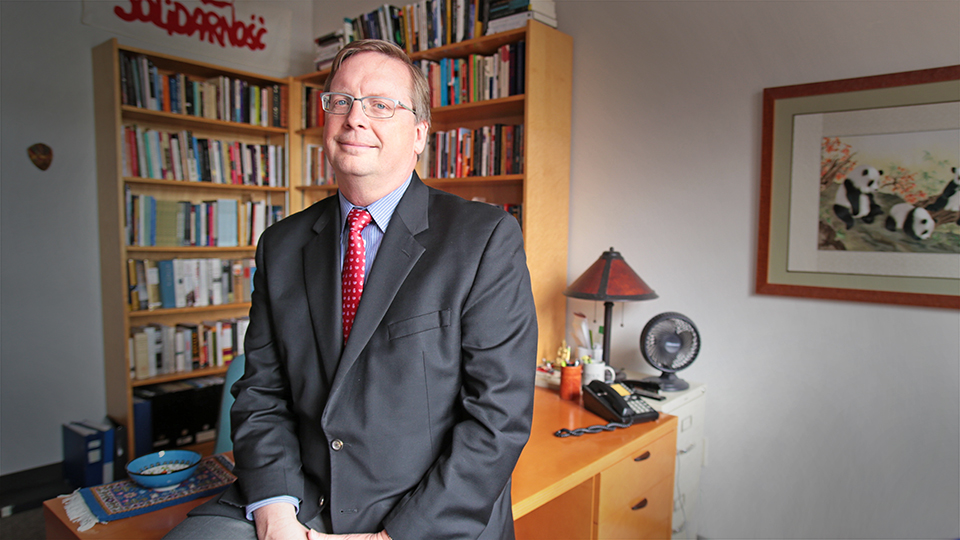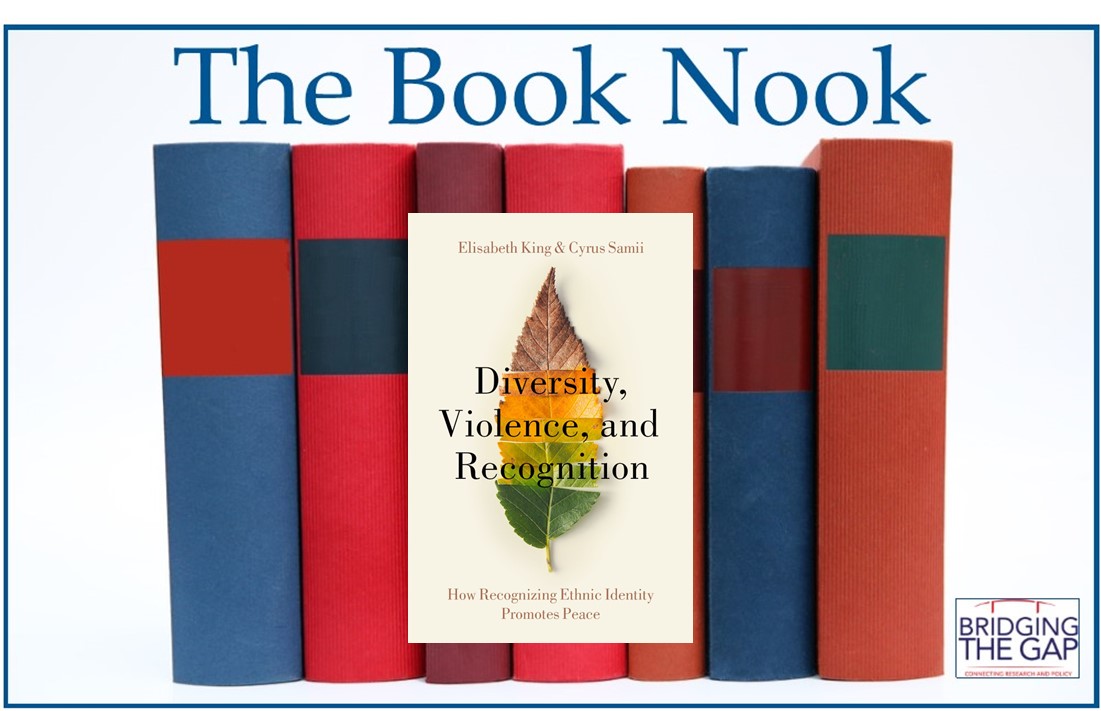Just like any other medium, video games can serve pedagogical purposes.


Just like any other medium, video games can serve pedagogical purposes.

In 2014, John Mearsheimer authored a Foreign Affairs article in which he blamed that year’s Ukrai…

Back in the Duck of Minerva's heyday, Jon Western was one of its anchors. Indeed, it wasn't that long ago that we were talking about his returning. Jon said that he'd gained important perspective on...

Is Constructivism best understood as a scholarly disposition, a body of theory, or an intellectua…

I'm working on a new project about the use of religion in power politics (part of which I'll be presenting "at" APSA this week). I'm finding good evidence, but the framing is tricky. Religion as a power political tool happens, and matters, but it rarely works out the way the wielders intended. Is this an example of ideas mattering in international relations, or an example of their limits? The fact that I feel forced into such a binary reflects a broader issue in the sub-field. As we all learn in Intro to IR, the study of ideas revolves around constructivism. With the emergence of neorealism...
The artist Rufina Bazlova has used traditional embroidery to describe current events in Belarus This past weekend, two European capitals witnessed large-scale protests. Both of them protested against the government, both carried the flags that once symbolized their state, in both cases the police was involved, and during one of them the crowd was chanting “Putin! Putin!”. If you think the latter happened in Minsk you are sadly mistaken: the crowd in Belarus is much more creative than the Neo-Nazi conspiracy theorists in Berlin. The 38,000-strong crowd in Berlin was doing yoga against German...

Whether scholars embed policy recommendations in their work is a flawed measure of whether work is policy-relevant. Across a series of articles and book chapters, Michael Desch and Paul Avey have argued international relations scholarship is declining in policy relevance, with IR scholars falling into what Stephen Van Evera has called a “cult of the irrelevant”: a hermetically-sealed professional community that values technique and internal dialogue over broader societal and political relevance. As evidence, they cite data demonstrating a marked decline in the frequency...

Photo courtesy of the European Union. Used under Creative Commons License. This is a guest post by William Akoto, a postdoctoral researcher jointly appointed at the Sié Chéou-Kang Center for International Security & Diplomacy at the Korbel School of International Studies, University of Denver, and the One Earth Future Foundation. In the fall, he will begin a tenure-track appointment at Fordham University. Universities are under increasing pressure from politicians, funders and the public to demonstrate the broader social value of their work. In response,...

https://www.youtube.com/watch?v=Dz4nVxxllTo This entry in the Bridging the Gap Book Nook series comes from Elisabeth King and Cyrus Samii of New York University. In their new book, Diversity, Violence, and Recognition (Oxford, 2020), they address key questions for peace-building in multi-ethnic societies: Under what conditions do governments manage internal violent conflicts by formally recognizing different ethnic identities? And what are the implications for peace?
Guest post by Sandor Fabian is a PhD candidate at the University of Central Florida and instructor of record at the NATO Special Operations School. His research is in security studies with a focus on new concepts of conflict, U.S. foreign military aid, and counter hybrid warfare. Follow him at @SandorFabian2 and Doreen Horschig is a PhD candidate and teaching associate at the University of Central Florida. Her research is in nuclear security with a focus on public and elite opinion on nuclear weapons and norms of weapons of mass destruction. Follow her at @doreen__h By now the world has...

The following is a post by ISA journal editors Krista Wiegand (International Studies Quarterly), Debbie Lisle (International Political Sociology), Amanda Murdie (International Studies Review), and James Scott (International Studies Perspectives). There has been a lot of talk in academia about the many negative consequences the COVID-19 pandemic has generated, ranging from declining enrollments, inability to travel for field research or conferences, and research productivity working from home. As editors of the International Studies Association (ISA) journals, we started noticing some new...

Like so much else in international relations, the answer to this question seems "obvious." But, like so much else, it gets trickier when we really investigate the situation, and it reveals nuances to international relations that many scholars and policy analysts overlook. About a week ago, Egypt sent medical equipment to the United States to help in the fight against Covid-19. The packages were printed with "From the Egyptian People to the American People." This prompted many dark jokes, as Egypt is currently suffering a major Covid-19 outbreak it is struggling to contain. Then Turkey...